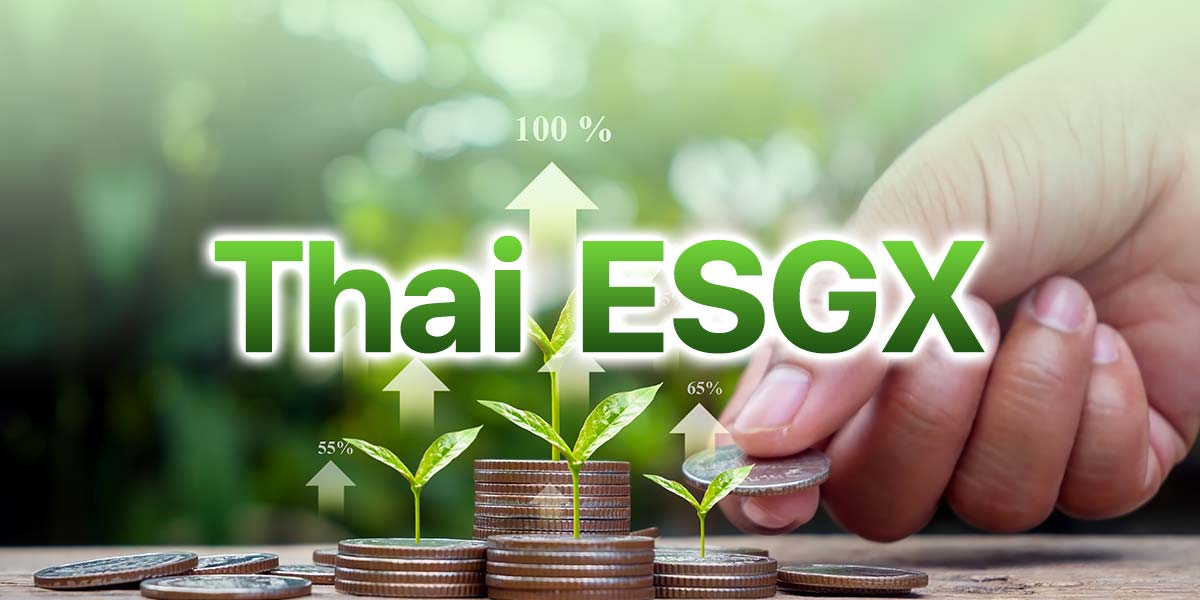Chavinda Hanratanakool, Managing Director of Krung Thai Asset Management (KTAM) and Chairman of the Association of Investment Management Companies (AIMC), revealed to “Kaohoon” that the net trading value of the special Thai ESGX funds stood at THB 31.4 billion as of June 30, 2025. This figure comprises THB 24 billion transferred from Long-Term Equity Funds (LTF) and THB 6.7 billion in new investments.
According to Chavinda, both the transferred funds from LTF and new capital were considerably lower than anticipated, with new investment lagging expectations the most. The reasons for this shortfall include:
- The bonus payout season for most companies has already passed.
- Investors lack confidence in the Thai stock market.
- Investors are reluctant to commit their investments for a full five calendar years.
Chavinda admitted that the inflow into the Thai ESGX funds during this period has not stimulated the Thai capital market as the government had hoped.
Despite the lower-than-expected inflows, Chavinda noted that as of Friday, July 4, 2025, the net asset value (NAV) of the funds increased to THB 32.5 billion, up from THB 31.4 billion at the end of June, reflecting a rise in the stock market index between July 1 and 4.
She also disclosed that, as of April 30, 2025, approximately THB 48 billion in LTF investments had exited the market. Of this, around THB 16 billion left the system entirely, while THB 24 billion was reinvested in Thai ESGX.
The outstanding amount of LTF remaining in the system stood at around THB 100 billion as of June 30, 2025. Chavinda anticipates that investors will gradually withdraw these LTF funds from the market over time, a process that is unlikely to have a significant negative impact on the Thai stock market due to the current unfavorable conditions for LTF sales.
At the same time, institutional investors are gradually injecting fresh capital into the market, especially while the Thai stock market faces several challenges. The outlook for further investment will remain uncertain until the result of tariffs negotiation between Thailand and the United States becomes clear.
For the week of July 7-11, 2025, Chavinda expects the Thai stock market to remain “highly volatile,” but with “limited downside,” given the likelihood that the fiscal year 2026 budget bill will pass without major issues.
However, the government must secure favorable terms in tax negotiations with the US; otherwise, failure could have a severe impact on both the Thai economy and stock market, with clear effects likely seen from 2026 onwards.
Commenting on the broader stock market situation, Chavinda described 2025 as having been “worse than expected” and “harsher” than previous years, impacted by both domestic and international factors, particularly political instability.
She noted that, historically, Thai politics rarely had substantial effects on the stock market, but this year the market has dropped by nearly 20%, marking a significant downturn. Although there are concerns regarding US tax policy, Chavinda believes Thailand can manage to some extent—but domestic political uncertainties have only deepened investor unease.
For the upcoming week (July 7-11), both mutual funds and the “Vayupak Fund 1” (vayu1) are seeking entry points to gradually invest, with high-yield dividend stocks being the primary target for institutional investors.
Thai dividend stocks are highly attractive at present, offering an average dividend yield close to 5%, with some bank stocks yielding as much as 8%. Given their status as a core sector of the Thai economy, these attractive yields provide Thai equities with a unique strength compared to global peers.





